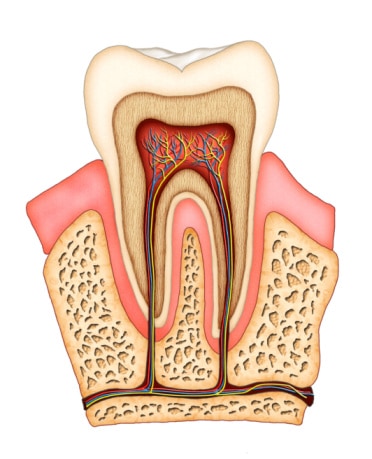
Tag: enamel erosion reno
Getting To Know Your Tooth Enamel

Ninety-six percent of tooth enamel is composed of minerals, while the remaining percentage consists of water and organic material. The main mineral in enamel is hydroxylapatite which is also known as crystalline calcium phosphate.
The Role of Tooth Enamel
The main role of tooth enamel is to protect the soft layer of dentin. Enamel also serves as a hard surface for chewing, grinding, and crushing food.
Enamel is semi-translucent and porous. Eating dark foods and drinking dark beverages, such as red wines, coffee, or soda, can cause the enamel to discolor and stain. Smoking, age, and certain medications also cause tooth stains. A beautiful smile is a white smile, so if your teeth are stained, consider professional, safe teeth whitening prescribed by Dr. Wager and Dr. Evans.
Enamel Erosion
Even though enamel is the hardest substance in your body, it is susceptible to damage. The food you eat contains sugars and starches, and when these components mix with saliva, they form acid. The acid extracts minerals from tooth enamel, weakening it. Then bacteria invade and cause decay, or cavities. Acidic foods, like citrus fruits, tomatoes, and carbonated beverages, also erode tooth enamel. Your tooth enamel doesn’t remain soft forever. Saliva will remineralize and re-harden the enamel within 30 minutes to an hour after you stop eating and drinking. Continue reading “Getting To Know Your Tooth Enamel”
The Inside Scoop About Enamel Erosion

What causes tooth sensitivity? Enamel erosion might be to blame, and the same goes for tooth decay.
To understand what enamel erosion is, you first need to understand what tooth enamel is. Enamel is the hard, white coating that covers your teeth. This coating is your teeth’s natural defense system, and nature knew what it was doing when it designed the human body because tooth enamel is the second hardest naturally occurring substance in the universe, second only to diamonds! This means that it can protect your teeth from the extreme pressures, temperatures, and elements your teeth come in contact with on a daily basis.
Still, however, your enamel isn’t indestructible. While it’s unlikely that your dental enamel can chip off, it’s very likely that it can wear away, and this can happen for several reasons. In most cases of enamel erosion, acid is to blame. Every time we eat or drink, acids form in our mouths and, if not removed by proper brushing, flossing, and rinsing, can begin to eat away at our tooth enamel. Enamel erosion is often present in people with acid reflux disease and GERD because of the high levels of acid that come up from the stomach to the mouth. Frequent vomiting and consuming foods and drinks that are high in sugar and carbohydrates expose your teeth to even more acidity. Continue reading “The Inside Scoop About Enamel Erosion”


